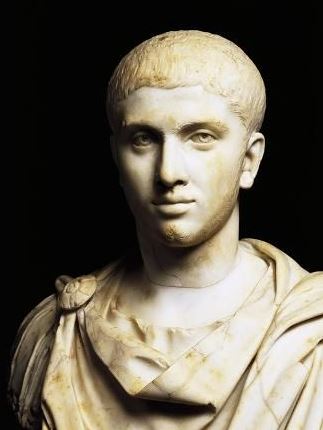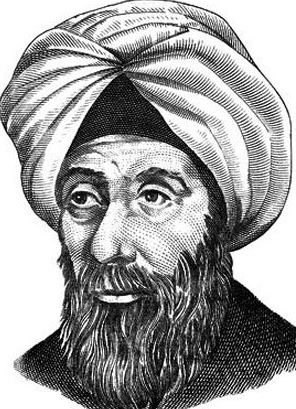Severus Alexander, born on October 1, 208 AD, was the Roman emperor from 222 to 235 AD. His reign marked the final chapter of the Severan dynasty, an era known for political instability and military challenges. Despite his relatively young age when he ascended to the throne, Severus Alexander’s rule was shaped by his attempts to restore peace and stability to an empire that had suffered from corruption, civil strife, and external threats.
Early Life and Rise to Power
Severus Alexander was born as Marcus Julius Gessius Bassianus Alexianus in Arca Caesarea, a town in modern-day Syria. He was the cousin of Elagabalus, the Roman emperor who preceded him. After Elagabalus’ increasingly erratic rule, which alienated both the Roman Senate and the military, Severus Alexander was adopted by Elagabalus and named Caesar, or successor. In 222 AD, at the age of 13, Severus Alexander was declared emperor following the assassination of Elagabalus by the Praetorian Guard.
Influence of Julia Mamaea
Severus Alexander’s reign was deeply influenced by his mother, Julia Mamaea. Known for her intelligence and political acumen, she served as a de facto co-ruler during much of his reign. Julia Mamaea ensured that her son was well-educated and surrounded by capable advisors. The emperor was known for his intellectual curiosity and passion for philosophy, which earned him respect among scholars but caused friction with the military.
Julia Mamaea’s influence extended to matters of state, particularly when it came to maintaining a peaceful relationship with the Roman Senate. She promoted reforms aimed at improving the moral and social fabric of Roman society. However, this reliance on his mother for guidance led some critics to believe that Severus Alexander lacked strong leadership.
Domestic Policies and Reforms
Severus Alexander focused on internal reforms to stabilize the empire. One of his major achievements was a thorough reorganization of the financial system. He reduced taxes and took steps to prevent corruption within the provincial administrations. By doing this, he aimed to ease the financial burden on the citizens of Rome, many of whom had suffered under heavy taxation during previous reigns.
In terms of legal reforms, Severus Alexander attempted to restore justice and reduce the influence of corrupt officials. His reign was marked by an emphasis on fairness and the protection of the lower classes. He also promoted Roman religion, although he was tolerant of other religious practices, including Christianity, which was becoming more prominent during this time.
Challenges in Foreign Policy
Despite his efforts to maintain peace, Severus Alexander faced significant challenges on Rome’s frontiers. The most notable conflict occurred with the Sassanian Empire, the rising power in Persia. In 231 AD, the Sassanian king, Ardashir I, launched an invasion of Roman territories in the East. Severus Alexander, with the help of his generals, led a military campaign to repel the invaders. While Rome succeeded in pushing back the Persian forces, the campaign failed to achieve a decisive victory.
Simultaneously, the Roman Empire faced growing pressure along the northern borders from Germanic tribes. Severus Alexander attempted to address these threats diplomatically by offering bribes to the Germanic leaders in exchange for peace. However, this decision proved unpopular with the Roman legions, who saw it as a sign of weakness.
Military Discontent and Assassination
Severus Alexander’s relationship with the Roman military deteriorated rapidly during the latter part of his reign. The emperor’s failure to secure decisive victories against Rome’s enemies and his perceived dependence on his mother alienated the soldiers, who yearned for a more assertive and independent leader. The final straw came in 235 AD when Severus Alexander sought to negotiate with the Germanic tribes once again, offering them money in exchange for peace.
The Roman legions stationed along the Rhine River, already dissatisfied with his leadership, viewed these actions as cowardly. In March of that year, a group of soldiers in the province of Germania Superior mutinied. They proclaimed Gaius Julius Verus Maximinus, a general known for his strong military leadership, as emperor. Severus Alexander, along with his mother Julia Mamaea, was assassinated by his own troops, bringing an end to the Severan dynasty.
Legacy of Severus Alexander
Severus Alexander’s reign, although marked by internal reforms and efforts to maintain peace, is often overshadowed by the chaos that followed. His assassination triggered the beginning of the Crisis of the Third Century, a period of nearly 50 years during which the Roman Empire was plagued by civil wars, invasions, and economic collapse.
Despite the challenges of his rule, Severus Alexander is remembered for his attempts to bring stability and fairness to Roman governance. His emphasis on education, legal reforms, and tolerance toward religious diversity offered a brief respite in an otherwise turbulent era. The reforms he initiated in finance and law laid the groundwork for future emperors to build upon, even if his reign ended in violence and betrayal.
Severus Alexander’s Personal Traits and Philosophical Leanings
Severus Alexander was known for his gentler and more intellectual approach compared to his predecessors. Unlike many emperors who relied on brute force or lavish displays of power, Severus Alexander was influenced by Stoic philosophy. He believed in ruling justly and preferred diplomacy over war when possible. His reign attempted to balance the need for a strong military presence with his ideals of peace and cooperation.
His tolerance towards various religions, including Christianity, stands out in Roman history. Although Christianity was not officially recognized, his leniency towards the religion allowed it to grow quietly during his reign. This was in contrast to the persecution Christians had faced under previous emperors.
Key Achievements
- Financial Reforms: Severus Alexander implemented policies that curbed corruption in provincial administrations, reduced taxes, and stabilized the economy.
- Legal Reforms: His reign focused on fair justice, implementing measures to protect the poor and reduce the influence of corrupt officials.
- Tolerance of Religion: While a promoter of traditional Roman religions, Severus Alexander was notably more tolerant of Christianity than his predecessors.
- Defensive Campaigns: He defended the empire from external threats, including the Sassanians in the east and Germanic tribes in the north, though with mixed success.
A Reign of Reform and Challenge
Severus Alexander’s reign was a complex period of Roman history. He inherited an empire in crisis and sought to address its many internal issues through reforms and a focus on justice. His diplomatic approach, while progressive, ultimately cost him the loyalty of the Roman military, leading to his assassination. Nevertheless, his efforts to improve governance and his relative tolerance towards religious diversity left a lasting mark.
Though his reign was short and fraught with challenges, Severus Alexander’s contributions to Roman law and governance offer a unique glimpse into an emperor who valued intellect, justice, and peace in an empire often defined by warfare and political intrigue.




